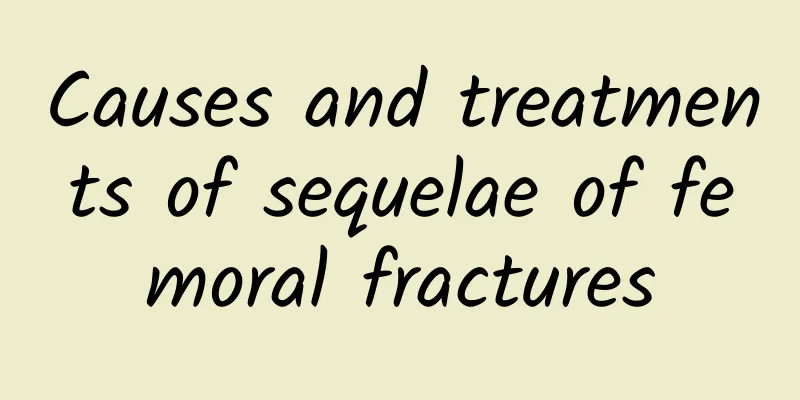Be aware that these actions may cause prostate enlargement!

|
Men are more likely to suffer from prostate diseases, especially with the increase of age and the decline of kidney function, the possibility of prostate enlargement is greater. But if young men also have prostate enlargement, it is very likely related to some bad daily life behaviors, so be sure to avoid them. Symptoms of an enlarged prostate Prostatic hypertrophy is also called prostatic hyperplasia. The symptoms are mainly manifested in two groups, one is bladder irritation symptoms; the other is obstructive symptoms caused by the obstruction of the urinary tract by the hypertrophic prostate. Bladder irritation symptoms: frequent urination, urgency, increased nocturia and urgency incontinence. Frequent urination is an early sign of prostatic hyperplasia, especially the increase in nocturia is more clinically significant. The disease has three main characteristics: enlarged prostate volume; bladder outlet obstruction; lower urinary tract symptoms such as difficulty urinating, frequent urination, and urgency. If symptoms are found, it is recommended to go to the hospital for examination and treatment in time. To avoid delaying the disease and affecting health. Causes of Prostate Enlargement 1. First of all, prostatitis has not been completely cured, or urethritis, cystitis, seminal vesicle inflammation, etc., cause the prostate tissue to become congested and proliferate. 2. Excessive sexual life and masturbation will cause congestion of sexual organs, and prolonged congestion of prostate tissue will also cause prostate hyperplasia. 3. In addition, frequent alcoholism or long-term drinking, and eating spicy and other irritating foods can stimulate prostate hyperplasia. 4. Lack of physical exercise can cause hardening of the arteries and poor blood circulation in the prostate, which can also lead to this disease. 5. Bad mood will lead to stagnation of qi in the liver, poor circulation of qi and blood, causing blood stasis in the body, which will cause obstruction of prostate circulation and lead to hyperplasia. 6. Holding urine for too long and drinking less water will cause the urine to become more concentrated and the frequency of urination to decrease, leading to the accumulation of toxins in the urine. The harmful substances in the urine will damage the prostate. 7. Unreasonable dietary structure and unhealthy eating habits are also important factors that induce prostate disease. 8. Prostatic hyperplasia in the elderly is mostly caused by the decline of body functions and imbalance of hormone regulation, which belongs to the category of "kidney deficiency" in traditional Chinese medicine. Treatments for enlarged prostate 1. Vigilant observation. Treatment: Mild prostatic hyperplasia, with no symptoms or very mild symptoms, requires regular examinations and close observation. Once the disease progresses, active treatment is required. Disease recovery can be promoted by changing lifestyle habits, such as reducing fluid intake, drinking fluids at regular times and in fixed quantities, and avoiding drinking alcohol and large amounts of coffee. Disadvantages: It has no therapeutic effect and is only used for disease care. 2. Drug treatment. Treatment: Hormone or anti-hormone drugs, α-adrenaline receptor blockers, 5α-receptor reductase inhibitors, cholesterol inhibitors and other drugs are widely used in the market. Disadvantages: It has serious side effects and is easy to cause dependence. Long-term use can cause great harm to the cardiovascular and cerebrovascular systems and the immune system. And because Western medicine has not yet fully understood the root cause and pathogenesis of prostate hyperplasia, Western medicine is mainly used to improve and relieve symptoms, rather than to cure prostate hyperplasia. 3. Surgical treatment Treatment: Palliative surgery such as bilateral orchiectomy and transurethral resection of the prostate; open surgery such as suprapubic transvesical prostatectomy, retropubic prostatectomy, and transperineal prostatectomy. Disadvantages: The surgery is risky and expensive. The choice of surgery should be based on factors such as hospital conditions, the doctor's surgical proficiency and experience. Moreover, surgical resection does not completely remove the prostate tissue, and the remaining prostate tissue in the body may still have the possibility of disease. |
<<: What are the dangers of prostate hyperplasia?
>>: Don't underestimate prostate hyperplasia, it may have these hazards
Recommend
Is there a small meat ball on the testicle?
There is a small fleshy ball on the male testicle...
What is the reason why men have a heavy breath?
Bad breath occurs not only in adults, but also in...
Tips for pregnancy with low sperm survival rate
Low sperm survival rate in men is what we often c...
Solutions for gonococcal epididymitis
The main problem of gonococcal epididymitis is th...
What causes frequent urination and bloating in men?
Frequent urination is not uncommon today, and it ...
What to do with urinary tract infection? Medication treatment, diet and daily life should be done well
In the hot summer, it is easy for various bacteri...
What should men do if they have frequent urination, urgency and pain?
What about men's frequent, urgent and painful...
Men's sexual health methods
Maybe many of our male friends have kidney defici...
How to regulate the prostate
Prostatitis is a disease that mainly occurs in ma...
Chest training is an indispensable sport for men
The chest muscles can be said to be the most note...
What is the normal body temperature for men?
The temperature inside the human body is called b...
At what age does a man lose his sexual function?
Sexual intercourse is something that every adult ...
Why do men have pain on the right side of their lower abdomen?
In daily life, many men often have lower abdomina...
What are the symptoms of bilateral orchitis?
Men have two sides of the testicles, but they are...
What tests are done for chronic prostatitis
The following are the examinations that need to b...









